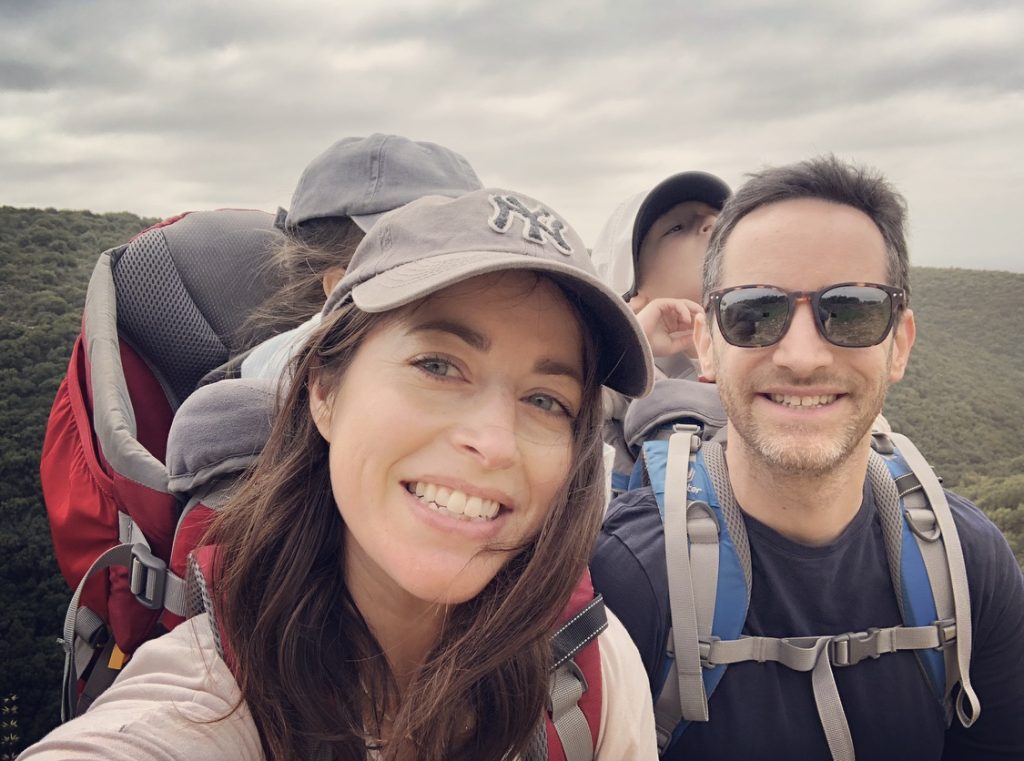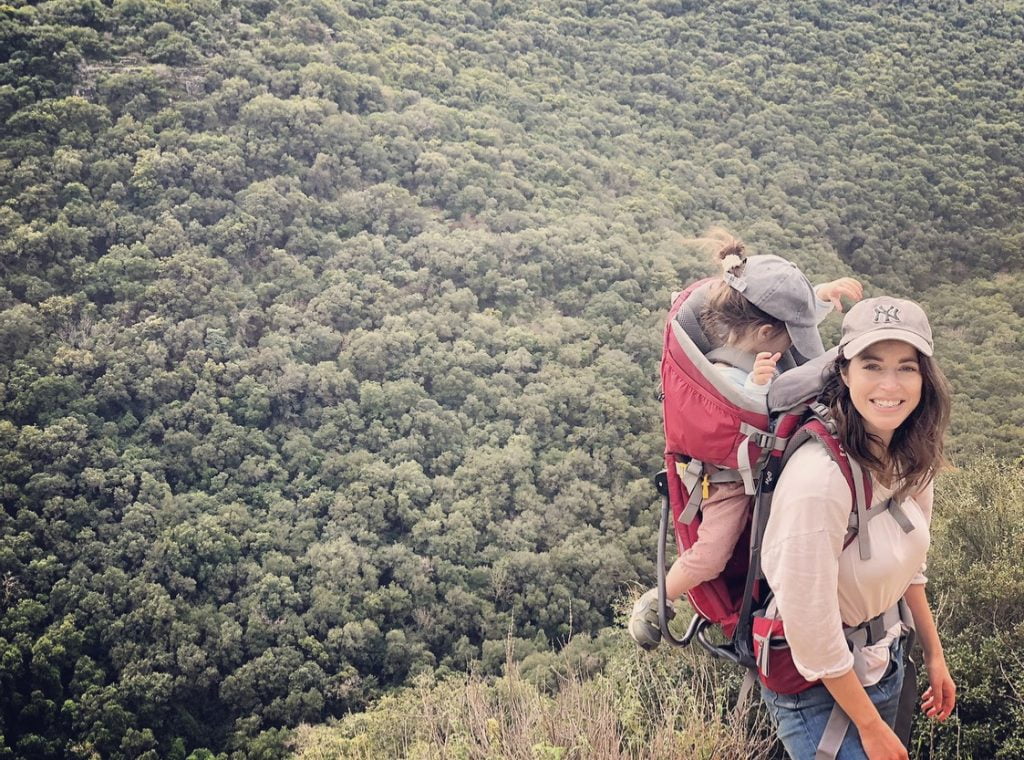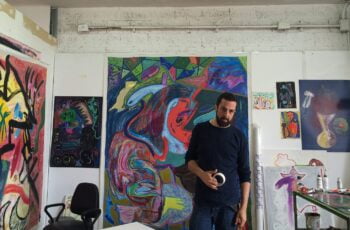This guest post is written by NoCamels co-founder Anouk Lorie, also behind the popular podcast Founder Stories. Lorie lives in Tel Aviv with her family.
A few days ago, my friend was walking down the street in England, lost – like many of us – in a highly-charged torrent of thoughts and emotions about the coronavirus, when a woman walking toward her from the opposite direction coughed loudly, without covering her mouth. Instinctively, but discreetly, my friend moved away slightly. Angered by this gesture, the woman blocked my friend’s way and repeatedly coughed in her face, telling her “I have coronavirus and now you have it too,” before running away.
As my friend tearfully recounted this, I experienced a rush of disbelief, shock, horror and rage and felt myself slipping into yet more coronavirus-related panic. Then I remembered that in times of uncertainty and fear – and the coronavirus is creating a perfect storm of both – humans tend to react in one of two ways, and often in combination. The first brings out the absolute worst – and this coughing attacker is an extreme example – and the second brings out the best.
We all have a choice now.
The first is to continue to succumb to the tide of panic, allowing it to submerge our minds, our emotions, and eventually, our health. Like a drug, the never-ending news cycle has most of us hooked, unable to stop pressing the refresh button to get our fix. This leads to a society that spends most of its days in fight or flight mode, reacting in ways that are far from centered, rational, and conscious. We see this in stories about people being mugged for toilet paper, despite the complete irrationality of hoarding this product. There is no shortage of toilet paper and COVID-19 is not a gastrointestinal disease.
The woman who assaulted my friend is someone who has lost all connection to her inner self (possibly long ago); someone who has been completely carried away in the deluge of fear and reacts with vitriol and violence.
As someone who has spent years grappling with and working through my own anxiety and trauma, I do not allow myself to judge that woman (although she should be charged with a crime). I have had the good fortune of having access to years of therapy, yoga and meditation, and to have developed the necessary self-compassion and love to become a more conscious woman, mother, yoga teacher and writer. And yet, despite these tools, I still have moments when I feel the panic surrounding coronavirus rise, the gush of thoughts and triggers wrenching me away from my inner, true self.

That is why, in every moment, I know I have a choice. I can choose to either tune into that first frequency: scroll obsessively through news websites, Instagram, Facebook and Whatsapp, and be faced with a complete information overload (that will seldom provide me with truly relevant information). Or I can choose a second, diametrically opposed frequency.
That is the frequency of Source; of love, kindness, courage and compassion. As the founder of Aruna Yoga Nicki Forman says, when we are brought to our knees – in Hebrew Berech (ברך) – that is often when the blessing comes – Bracha (ברכה). We all know stories of those who emerged from the most difficult of life challenges with a wiser, calmer, more grateful outlook. Those who turned the curse into a blessing, the demon into a Daemon (from the ancient Greek “provider of destinies”).
Sign up for our free weekly newsletter
SubscribeYes, there is fear. Yes, there is panic buying. Yes, there is even death. But that is precisely why this global pandemic is also an invitation – at any moment – to do things differently. It is an invitation to slow down, to witness our internal states of panic, fear, and anger and to consciously acknowledge them without judging them. It is an opportunity to revisit the way we live, the things we buy, the way we parent our children, the mad and maddening race we blindly run. It is an instruction to pause, to breathe, to feel and to extend love, to ourselves and others. It is a summons to discover what is bigger than fear and to gently come back to the calm undercurrent.
While remaining vigilant and responsible, the news stories we should be reading are those of the people in Assisi, “singing to each other across the empty squares, keeping their windows open so that those who are alone may hear the sounds of family around them.” The stories of people who are grateful that in Wuhan, “after so many years of noise, you can hear the birds again. That after just a few weeks of quiet, the sky is no longer thick with fumes, but blue and clear,” as was written by Brother Richard Kendrick.
The Buddha is said to have said: “Our fears are great, but greater yet is the truth of our connectedness.” You do not need to belong to any religion, or indeed even to be religious, in order to connect to what is beyond the noise of your own mind. Slow down, be still, feel your feet grounding into the earth, witness your own thoughts and emotions, extend loving-kindness to whatever comes up, and you will be able to glimpse into a space that is more vast, more tranquil, and more loving than ever before.
Here are some simple, short practices you can do if you feel that you are stuck in the “trance of fear,” as meditation expert and psychologist Tara Brach calls it:
Grounding – When you’re in fear the mind narrows into a trance and is brought back to another time and place “and there is very little orientation,” according to Tara Brach. Take a moment to close your eyes and feel the weight of your body on the earth, feel gravity, feel your feet on the ground, or your body on your chair.
Touch – We all need human touch and in these times, that is limited. Close your eyes and you can put one hand on your heart and one hand on your stomach. Take in a few breaths like this, sending compassion to yourself. There is a real calming effect that can come with the touch of your own hands on your body.
Movement – When we are stuck in fear we usually get frozen. Like animals who literally shake out trauma (an antelope after a close call with a lion, for example), we can shake out fear with movement, like walking, dancing, or literally, shaking.
You can follow Lorie on Instagram and Facebook, where she will be posting more mindfulness and positive thinking tips, as well as information about live online yoga classes she will be giving.







Facebook comments